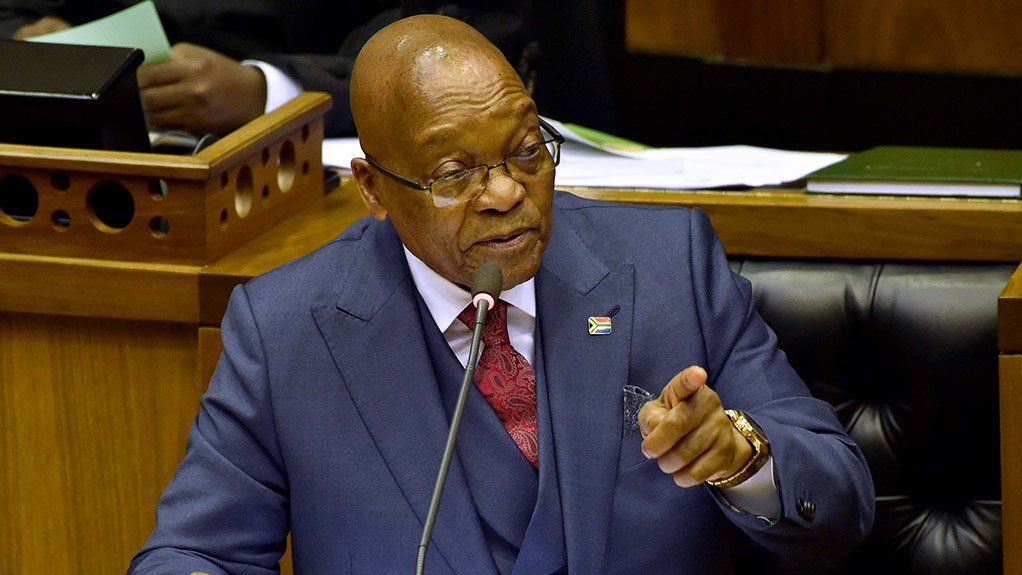Retired Judge Jonathan Heher, who headed the fees commission, says it is entirely up to President Jacob Zuma what he does with the recommendations.
"I don’t know how much consideration he [Zuma] has given to the report. We will have to wait and see what happens - either he rejects it or accepts it in part," Heher told News24 shortly after the report was released.
Zuma released the much anticipated report around 12:30 on Monday.
The release comes after it was reported that Zuma was preparing to announce a plan to introduce free tertiary education, which Morris Masutha, the apparent ex-boyfriend of his daughter, had allegedly devised.
"You know he [Zuma] can put our report on the top shelf if he wishes and ignore it. That is up to him. What the president does about it or doesn’t do about it is entirely in his discretion," Heher said.
"It is his report and we are his commission and what he does… is entirely his decision – subject to whatever the Constitution may say."
The Heher Commission into the Feasibility of Fee-Free Higher Education and Training has found that there is currently no capacity for the state to provide free tertiary education to all students.
"We have all the material out there which we set up [relating] to education and all the costs... I hope they will be of assistance to somebody else in due course," Heher told News24.
He said none of the recommendations could be implemented immediately.
Income-Contingency Loans
The commission was set up following the first eruption of the Fees Must Fall protests in 2015.
"…There is insufficient financial capacity in the state to provide totally free higher education and training to all who are unable to finance their own education, let alone to all students, whether in need or not," the executive summary of the commission’s report said.
Zuma’s reported plan was to find R40-billion within the already constrained budget to fund a free-education policy for families who earn less than R350 000 a year.
The president said in his statement on Monday that the Inter-Ministerial Committee on Higher Education Funding, led by the Minister in the Presidency Jeff Radebe, and the Presidential Fiscal Committee, led by Finance Minister Malusi Gigaba, were "processing the report".
"I will make a pronouncement on the report once the ministers have concluded their work. I have decided to release the report prior to the conclusion of our work in processing it so that the public can have an opportunity to study the report while we continue with the processing thereof," Zuma said.
The report recommended that undergraduate and postgraduate students studying at both public and private universities and colleges, regardless of their family background, should be funded through a cost-sharing model of government guaranteed "Income-Contingency Loans", sourced from commercial banks.
The commission recommended that, through the model, commercial banks would issue government guaranteed loans to students.
TVET education should be free
This meant students would have to pay once they graduated and attained a specific income threshold.
However, should the student fail to reach the required income threshold, government would bear the secondary liability.
The commission has also recommended that the existing National Student Financial Aid Scheme (NSFAS) model be replaced with the new Income Contingency Loan system.
It further recommends that the government consider the introduction of a university fee capping mechanism.
"NSFAS was unlikely to produce a significant proportion of successful students or to improve materially on its present gross inefficiency in the collection of loan debts."
According to the report, South Africa needed to improve its Technical Vocational Education and Training (TVET) sector to benefit the economy.
"TVET colleges must become institutions of first choice, rather than the holding position of second-class citizens as is presently the case."
The commission has also recommended that TVET education should be free for all and that stipends be made available, where needed, to cover the full cost of study.
EMAIL THIS ARTICLE SAVE THIS ARTICLE
To subscribe email subscriptions@creamermedia.co.za or click here
To advertise email advertising@creamermedia.co.za or click here











